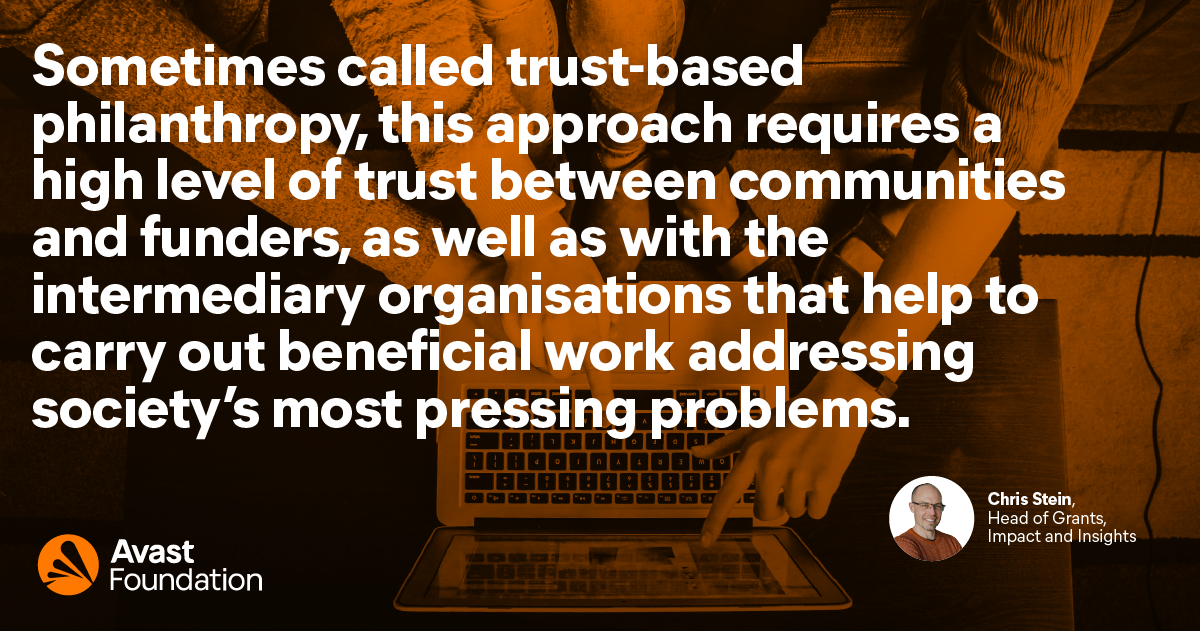Globally, donations from corporate foundations and philanthropic endeavours totals upwards of £182 billion, according to a recent Barclays report. These significant resources can be leveraged to do considerable good, as corporate philanthropy can unlock private wealth to address wider societal needs. During the height of the pandemic in the spring and summer of 2020, corporate giving in the US demonstrated an ability to be flexible, expanding the amount of funds available and changing the purpose of the grants. In the US, 92% of corporations, either increased (72%) or maintained their charitable giving budgets. 65% of corporations changed the direction of their grants to allow organisations to meet their most pressing needs, while 54% made extensions to their existing grants. According to a report by McKinsey and Company, “what’s striking is not only the scale of capital being committed by major philanthropists (at least $10.3 billion globally in May 2020, according to Candid, which is tracking major grants) but also how it is being given: at record speed, with fewer conditions, and in greater collaboration with others” themes addressed further in this blog.
The past two years has exemplified this intersection as corporate philanthropy sat in a different space from more traditional sources of income for charities. In the UK, Local Authorities have been called upon to respond to urgent and, sometimes, crisis matters resulting in reduced budget for charitable organisations commissioned to support delivery of services to local communities. Traditional trust and grant makers have, to some degree, provided emergency funding to organisations with whom they already had established relationships. Individual fundraisers have been stifled in their ability to raise funds as events such as the London Marathon have been cancelled. Referring to the previous paragraph, corporate philanthropy has shown itself to be flexible in responding.
While corporate philanthropy has a long history, the Avast Foundation champions a vision of 21st century corporate philanthropy as an approach and set of practices that empower communities to decide where and how best to allocate funding to address their own needs. Sometimes called trust-based philanthropy, this approach requires a high level of trust between communities and funders, as well as with the intermediary organisations that help to carry out beneficial work addressing society’s most pressing problems. For the Foundation, inclusive co-design is a core element of the DNA of programme development. We take the view that communities have a more holistic view and a deeper understanding of their own needs.

Trust-based philanthropy is and can be practised outside of a corporate environment, and indeed, these principles are becoming more prevalent among forward-thinking funders. Championing employee engagement is a distinct component of the Avast Foundation’s concept of 21st Century corporate philanthropy, and one which we believe has increasing potential to create long-lasting impact and benefit to all employees, organisations, and communities. A recent academic study found that corporations with philanthropic strategies - as opposed to ad hoc giving - experience fewer labour-related controversies, and that a company’s approach to philanthropy sends important signals to employees about its corporate culture, identity, and wider purpose, all of which help to create trust and cohesion among employees. Further, engaged employees who feel connected to the purpose of the organisation are also more likely to take advantage of opportunities to participate in volunteering and other philanthropic opportunities, creating a positive feedback loop.
Corporate philanthropy is not a singular relationship between corporations and wider society whereby corporations make grants to support causes du jour and do nothing more to engage. Undertaken strategically and mindfully, it has the opportunity to add value by directing resources to communities to make investments in social solutions, while also mobilising the skills, knowledge, and pro-social energy of employees to make the deepest and widest possible positive impact. The Avast Foundation, together with the support of the Avast Group and its employees, seek to embody these principles. As we set off on our journey to increase digital freedom and support digital citizens around the world, National Volunteering month provides a platform for all members of the organisation to make their voices heard and support causes that they care about deeply.
